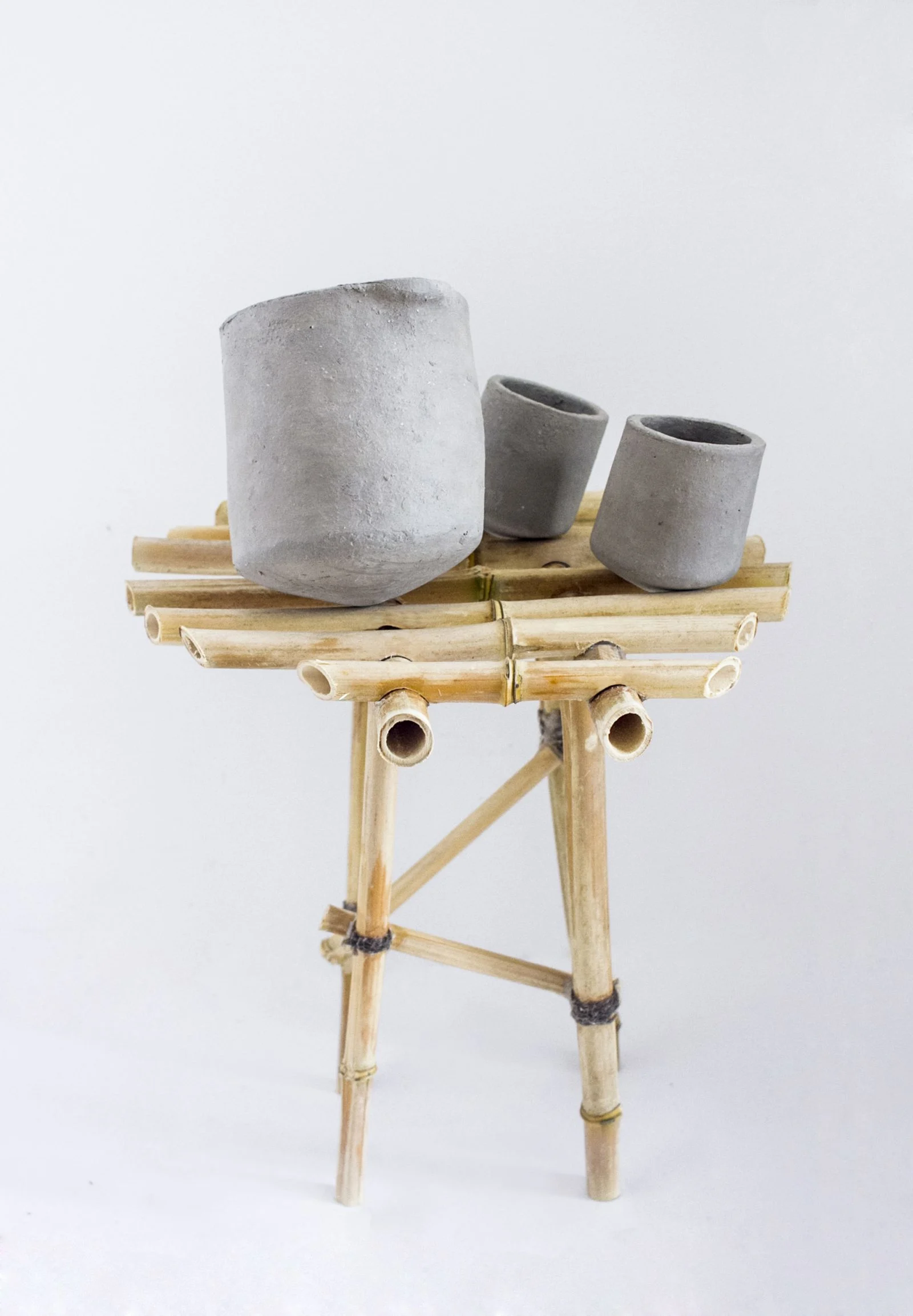
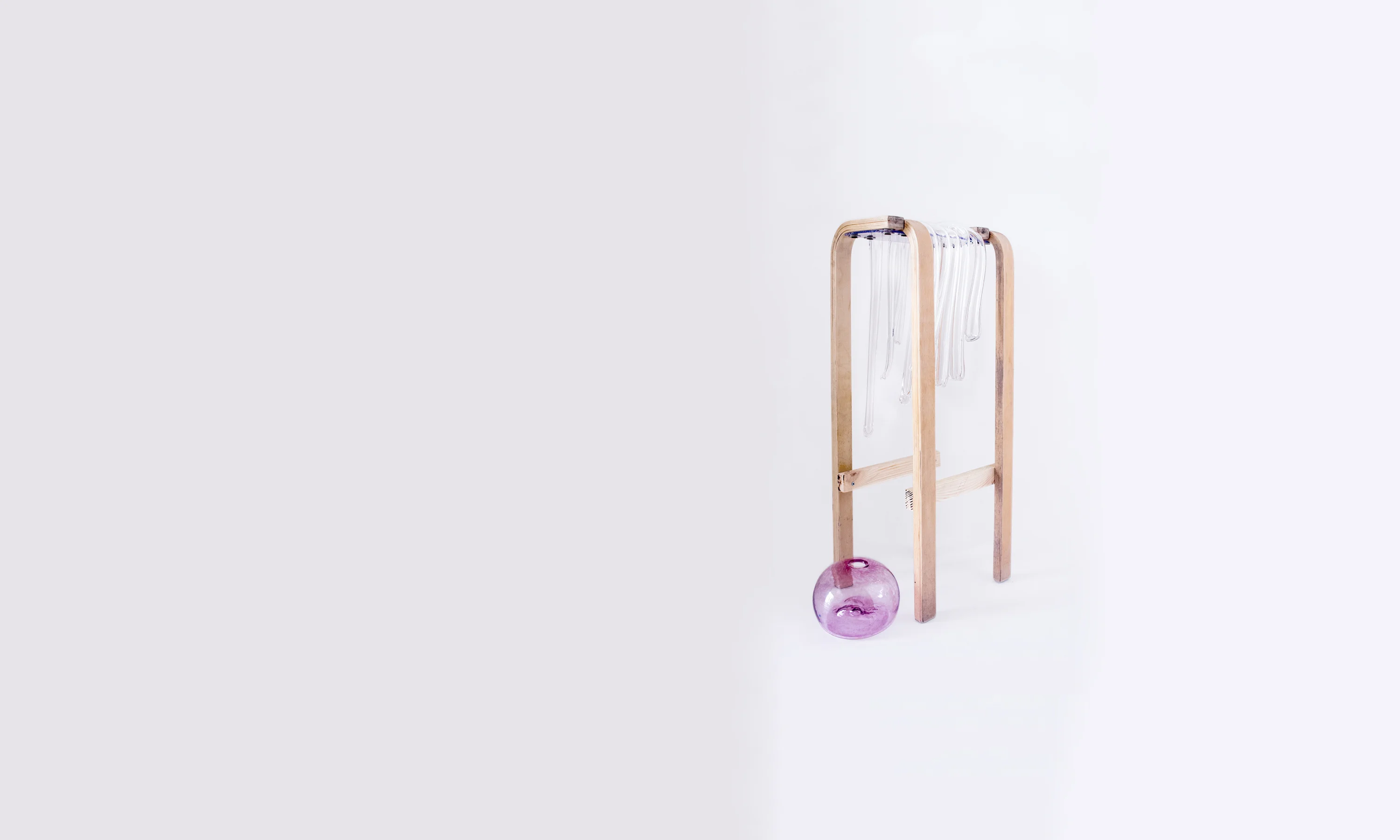
Ángeles Ortiz is a product designer, but the objects she makes aren’t the kind of things you’d use in everyday life. Instead she designs floating chairs, see-through cages and other curious items.
“My designs aren’t really practical. I’m passionate about telling stories, and when I find something I want to say, I focus on that. What interests me the most is the poetic part of an object, functionality comes second,” she says.
Ángeles researches how objects can have their own language. For example, she believes a black metal stool expresses something different than a red velvet armchair. The Ecuadorian designer explores how the way products are designed communicate a different message or story.
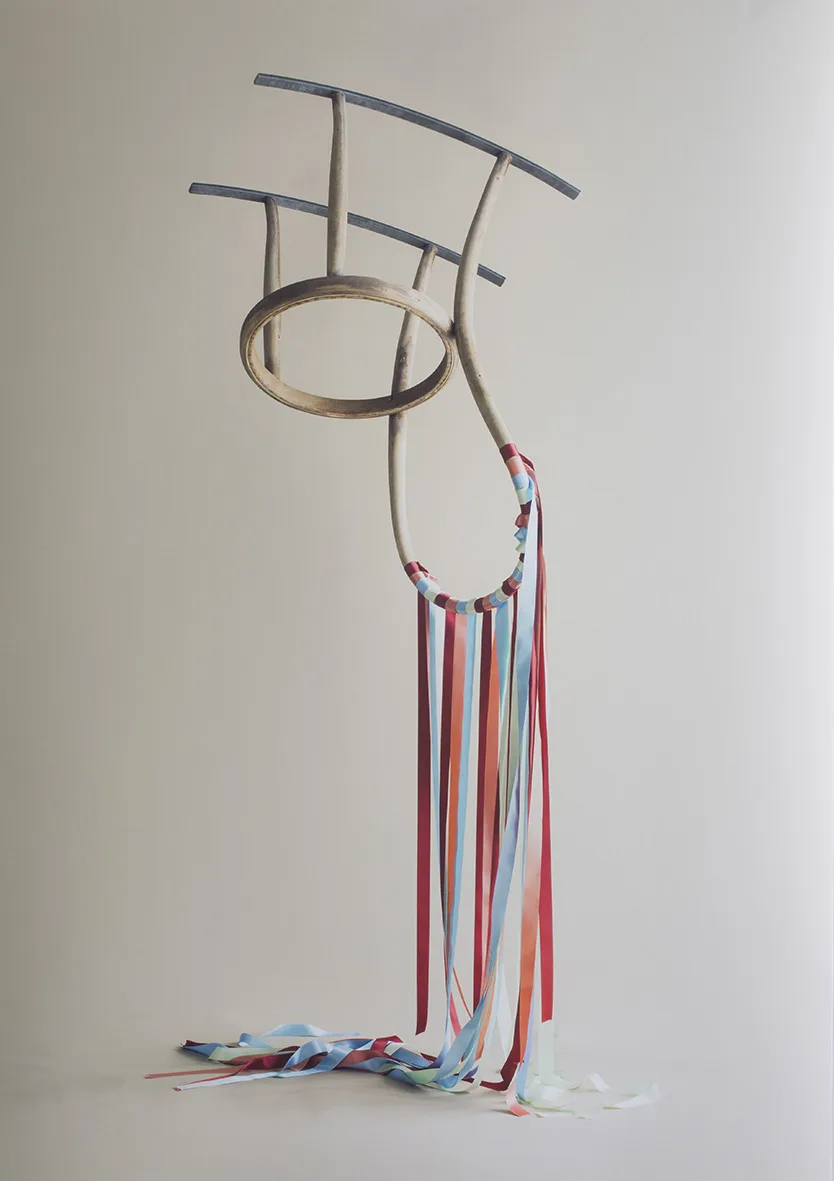
In her work she often asks universal questions about culture, human behavior and nature. Like her piece Metamorphosis, a glass birdcage that has a gold caterpillar inside, hanging from a thin thread. “I was obsessed with the question of how can you contain freedom. This is a paradox, of course, but I tried to find symbols that explore this idea.”
Solid but simultaneously fragile, the glass object should be treated with care, just like freedom. The cage is partially open, which inhibits it from imprisoning something. Inside, Ángeles put a caterpillar that’s about to grow into a butterfly.

“She embodies ultimate freedom for me, but what’s paradoxical is that she doesn’t have a notion of what that is. The concept of liberty is defined by humans, because we also know captivity. In nature things are absolutely free, but simultaneously there’s no such thing as freedom – things just are,” Ángelez says.
“But us humans, we’re part of nature as well. So the project forms an ongoing dialogue if we want, and can be, connected to this form of liberty, or not.”
And so, Metamorphosis doesn’t answer how you can capture freedom, rather it tells a story about the complex ways you can look at it and understand it.
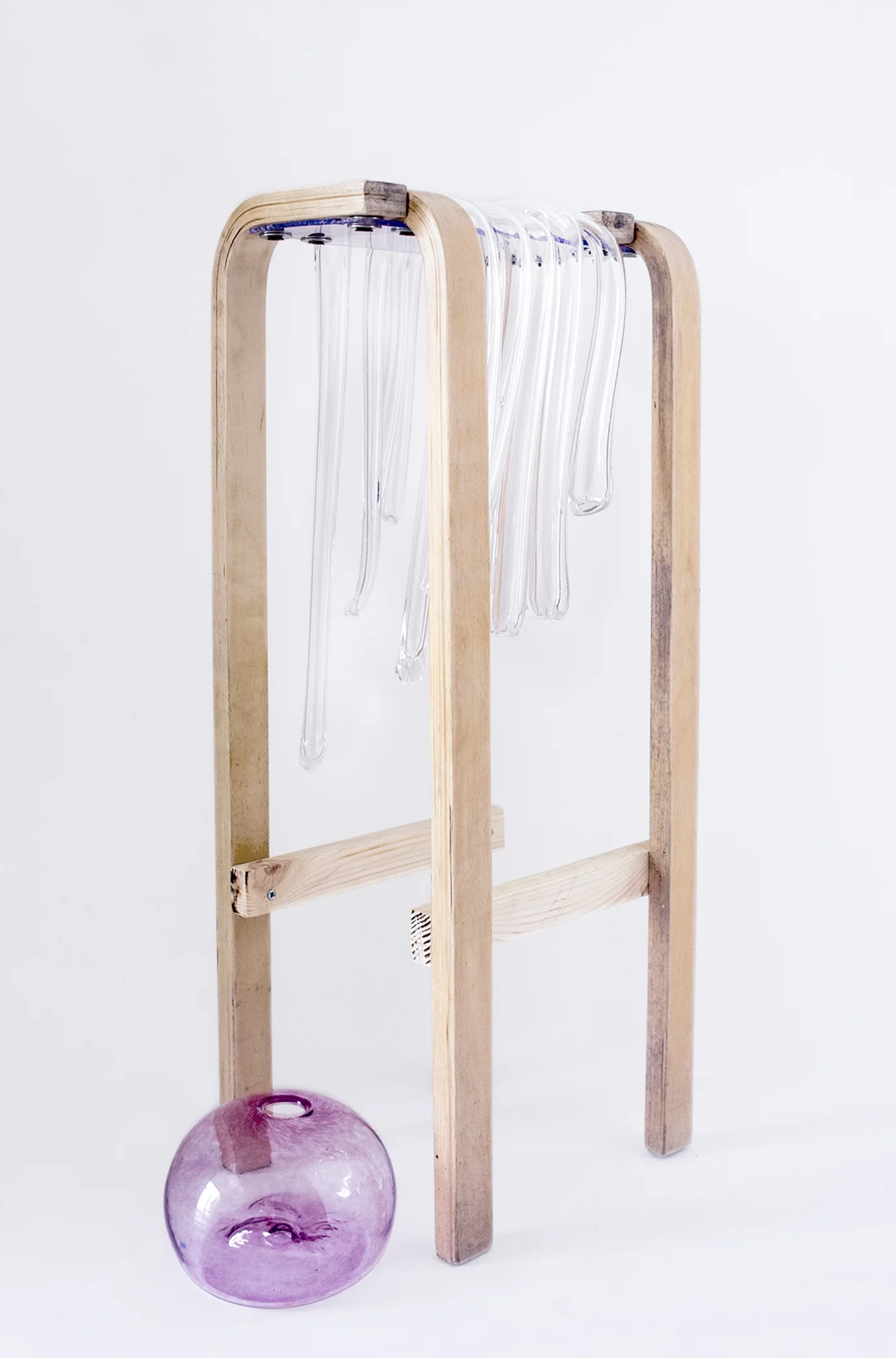
In Glass Stool, Ángeles explores complications that are inherently tied to communication. The wooden piece with a glass seating is a reinterpretation of the Ikea stool Frosta. This specific design has been reinterpreted many times before, tracing all the way back to its first edition, the 1930s Iconic Stool no. 60 by Alvar Aalto.
“It’s not a seat you can sit on, but that’s exactly the story I want to tell. It’s like that game ‘broken telephone’ – when you get to deliver a message that has been passed through a lot of filters, the message will be broken or very different from the beginning,” she explains.
“Similarly, what I receive of the world is very filtered because of my background and identity. It all has an influence on how I, but everyone for that matter, processes things.”
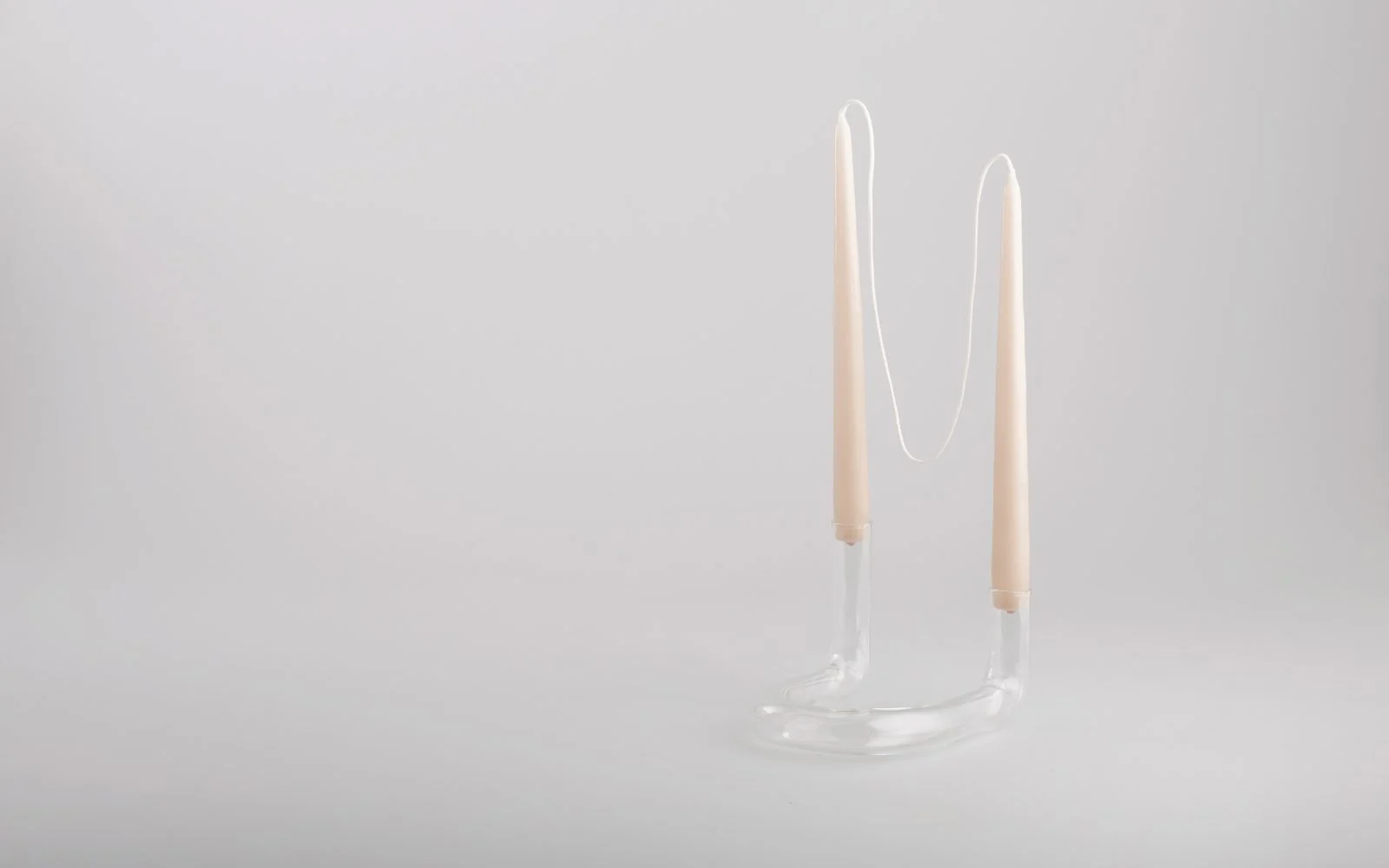
Ángeles pieces are humble, harmonious, and show a fine balance between formal design and influences of Ecuadorian local craftsmanship. “When I was a child I travelled a lot. My father was a pilot, and he took me every single corner of Ecuador, even deep into the jungle. So I’ve always had this curiosity towards how people live and how they create value,” she says.
“I think that’s the essence of what I try to do. I start dialogues between people and my work. I want to ask them questions about their passions, beliefs, culture and their identity.”
